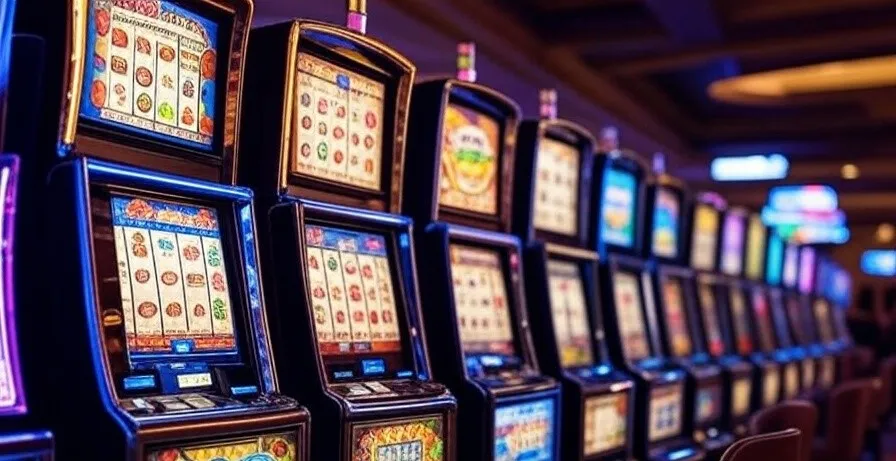Today credit cards are the most popular and handy payment method in everyday life – from groceries to streaming subscriptions. But what about gambling environments? Can you use a credit card at a casino? The answer varies. It mostly rests upon the particular casino’s regulations and policy, your location and card issuer. Understanding how credit and cash interact in a gambling setting is essential to avoid expensive mistakes. This article covers the way credit card casinos function, the nature of transactions, the hidden fees, and how to gamble more responsibly – especially when borrowed funds are involved.
Can You Use a Credit Card at a Casino?
Is it possible to pay with a card at a casino? The short answer is yes. However, there are major restrictions. Many casinos permit deposits or chip purchases using cards, but not all let you place wagers directly via a credit transaction.
In the majority of casinos that accept credit cards, you’ll need to go through a payment kiosk or cashier. Your card is charged, and you’re issued chips or a player balance. But operators can have certain limitations, require ID verification, or restrict the type of acceptable cards. Discovery and American Express, as an example, are often rejected due to tighter policies on gambling.
Rules can also vary by geography. For instance, credit card casinos in Las Vegas typically accept major cards, however, they may restrict direct betting. In Europe or Australia, you might find even stricter laws against paying with credit for wagering. If you plan to gamble abroad or on an online platform, always verify the operator’s rules to omit a declined transaction.
How Credit Card Transactions Work in Casinos
Paying in a supermarket with a credit card differs significantly from using one at a casino. While grocery transactions are processed as standard purchases, most casinos treat credit card payments as cash advances, triggering additional fees and higher interest rates. This difference significantly affects both the cost and approval process.
Here’s how the process unfolds:
- You insert your card at a cashier window or within an online gambling portal.
- The system executes a transaction that turns your credit into spendable cash or game credit.
Because these aren’t normal purchases, issuers often classify them as cash or quasi-cash advances, which trigger immediate interest charges. Some cards may block these payments outright, especially if issued by conservative banks.
Even if you’re using a casino that accepts credit cards, not all cards behave alike. Visa and Mastercard are typically accepted, while others may flag or block gambling charges. It’s important to know how your specific issuer handles these kinds of transactions, or you may be unexpectedly denied.
Fees, Interest, and Cash Advances Explained
When you use a credit card for gambling expenses, you might face surprising costs. Credit card providers generally don’t treat these payments as regular purchases. Instead, they’re often labeled as cash advances, which carry higher fees and interest rates. This distinction leads to steeper interest charges, upfront fees, and the immediate accrual of interest — without any grace period — making it a pricier method of payment than many anticipate.
Typically, you’ll be charged a cash advance fee – about 3% to 5% of the total transaction. If you use your card to take out $500 at a credit card casino, expect a $25 fee, plus interest starting immediately. And most issuers apply an APR upward of 20%, which makes long-term repayment costly.
Another downside is how payments are applied. Most cards apply your repayments to low-interest balances first, allowing cash advances to keep accumulating interest longer. Additionally, some casinos may tack on their own service fees, inflating your total cost further.
If you’re using your credit line for betting, these extra charges can build quickly. To stay in control, know your issuer’s fee structure and avoid treating gambling expenses like everyday spending.
Risks of Using Credit Cards for Gambling
With a card, the loss of money doesn’t feel as real as handing over cash, which may lead to impulsive or extended play. So you should comprehend that using a credit card for gambling does not only carry financial risks. It can create emotional and psychological strain.
At credit card casinos, it’s easy to spend beyond your limits. Since cards offer fast access to funds, many players lose track of how much they’ve risked. This is particularly dangerous for anyone prone to emotional spending or compulsive behavior.
Beyond overspending, there are risks connected to credits. Not to affect your credit score in a bad way, you should stop exploiting a big part of your limit for gambling. Here’s how:
- high balance utilization
- missed payments
- defaulted transactions
If your issuer sees frequent gambling-related activity, they may reduce your limit or freeze your account. Even worse, some people turn to additional advances to chase losses, falling deeper into debt.
Many financial experts and responsible gaming advocates advise avoiding credit altogether when gambling — especially with funds you can’t afford to lose.
Smart Alternatives and Tips for Responsible Play
Apply some safer options to control your budget, especially gambling one. Don’t just rely on credit cards. One of the most effective methods is to set a strict cash limit before you play. Bring only what you’re willing to lose, and leave your cards at home.
Debit cards are a better alternative. They pull funds directly from your bank account, helping you stay grounded in what’s actually available. You can also use prepaid cards or digital wallets like PayPal, especially for online casinos. These options reduce the risk of debt and help you stay within spending limits.
| Tip | Explanation |
| Set a cash budget | Define a spending cap before entering any casino that allows credit cards. |
| Use debit or prepaid cards | Limit access to only the money you already have available. |
| Try digital wallets | Great for online play with better payment tracking and fewer fees. |
Some platforms offer settings that let you cap spending, block transactions, or receive alerts when limits are exceeded. If you choose to gamble this way, make use of those tools.
Also, reputable casinos that accept credit card payment often include responsible gaming features like deposit caps, cool-down periods, or self-exclusion options. Whether you gamble in person or via online platforms, choose operators who support responsible behavior.
Always remember, gambling should be for fun — not for financial gain. Stay aware of your limits and walk away before it becomes a problem.































